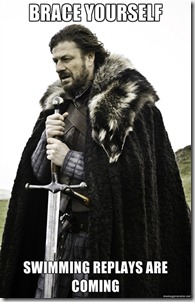 The themed issue of the Fibreculture journal on Trolls and the negative space of the internet has been released, with a raft of amazing articles, including my piece ‘Olympic Trolls: Mainstream Memes and Digital Discord?’ looking at the mainstreaming of some techniques associated with trolling, using a case study of a Facebook group lamenting the quality of Channel 9’s coverage of the 2012 Olympics.
The themed issue of the Fibreculture journal on Trolls and the negative space of the internet has been released, with a raft of amazing articles, including my piece ‘Olympic Trolls: Mainstream Memes and Digital Discord?’ looking at the mainstreaming of some techniques associated with trolling, using a case study of a Facebook group lamenting the quality of Channel 9’s coverage of the 2012 Olympics.
The abstract:
While the mainstream press have often used the accusation of trolling to cover almost any form of online abuse, the term itself has a long and changing history. In scholarly work, trolling has morphed from a description of newsgroup and discussion board commentators who appeared genuine but were actually just provocateurs, through to contemporary analyses which focus on the anonymity, memes and abusive comments most clearly represented by users of the iconic online image board 4chan, and, at times, the related Anonymous political movement. To explore more mainstream examples of what might appear to be trolling at first glance, this paper analyses the Channel Nine Fail (Ch9Fail) Facebook group which formed in protest against the quality of the publicly broadcast Olympic Games coverage in Australia in 2012. While utilising many tools of trolling, such as the use of memes, deliberately provocative humour and language, targeting celebrities, and attempting to provoke media attention, this paper argues that the Ch9Fail group actually demonstrates the increasingly mainstream nature of many online communication strategies once associated with trolls. The mainstreaming of certain activities which have typified trolling highlight these techniques as part of a more banal everyday digital discourse; despite mainstream media presenting trolls are extremist provocateurs, many who partake in trolling techniques are simply ordinary citizens expressing themselves online.
The full paper is freely available online, and as a PDF.

